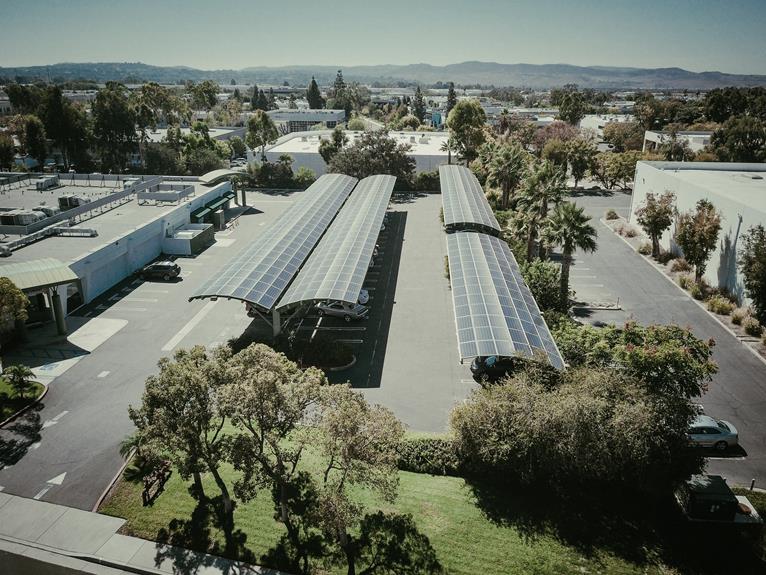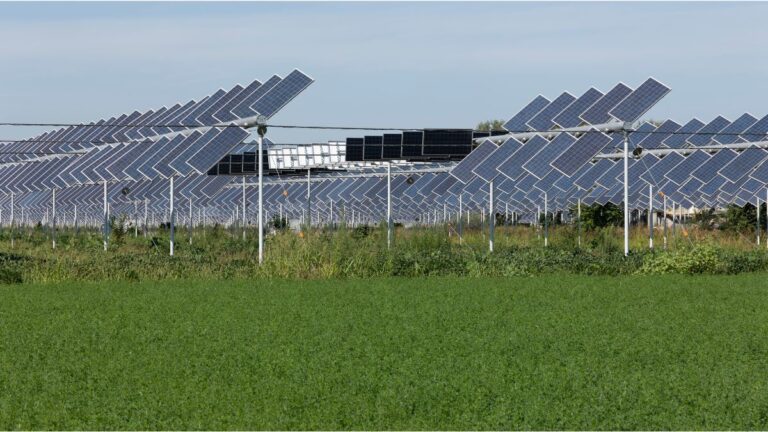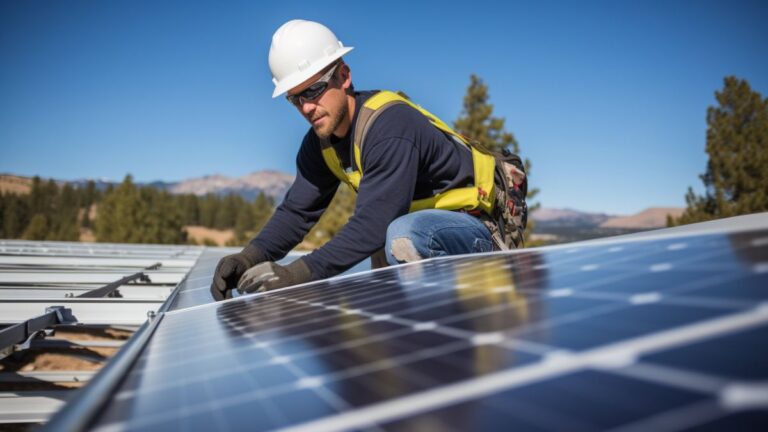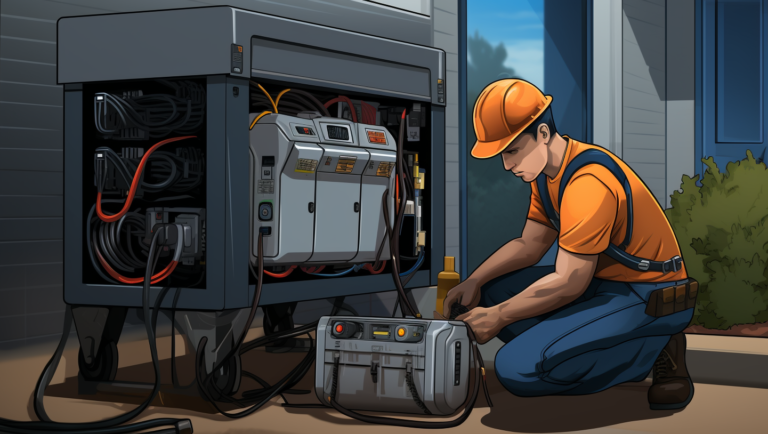Solar Power Revolutionizes Home Value: Are You Missing Out
We’re here to tell you about the incredible impact solar power can have on the value of your home.
Imagine this: you’re selling your house and potential buyers are willing to pay a $15,000 premium just because it has rooftop solar panels.
It’s not just about the money, though. Solar power can also increase the appraised value of your property.
Don’t miss out on this solar power revolution – join us as we explore how solar power can transform the value of your home.
Benefits of Solar Power for Home Value
One of the major benefits of solar power for home value is its ability to increase a property’s appraised value. Real estate buyers are willing to pay a premium for homes with rooftop solar panels, maximizing returns for homeowners.
In fact, a study found that buyers were willing to pay a $15,000 premium for a home with an average-size solar photovoltaic system.
By investing in solar power, homeowners not only save on energy costs but also attract buyers who value sustainability and want to reduce their carbon footprint. Solar power can significantly enhance the appeal and marketability of a property, making it more desirable to potential buyers.
Importance of Consulting Professionals
When considering the impact of solar power on property value, it’s essential for both buyers and sellers to consult with professionals in the real estate and solar industries. Real estate agents and solar companies can provide valuable expertise and guidance throughout the process.
For buyers, real estate agents can ensure that the solar array is visible in the property listing, either through specific content or engaging drone photography. This can help showcase the solar system’s value and benefits.
Solar companies, on the other hand, can offer insights on solar system maintenance and help buyers understand the long-term value of the system.
By working with professionals, buyers and sellers can maximize the potential value of the solar power system and make informed decisions.
Considerations for Prospective Homebuyers
As prospective homebuyers, we should be aware that fully owned solar power systems are assets for the property. When evaluating affordability, it’s important to consider the value that solar power can add to a home.
Research shows that buyers are willing to pay a premium for homes with rooftop solar panels, with an average-size system adding $15,000 to the home’s value. However, it’s crucial to understand the ownership status of the solar power system. Leased systems aren’t considered assets and don’t increase property value.
To fully understand the impact of solar power on property value, it’s recommended to consult with a professional real estate agent and solar company. They can provide expertise on solar contracts and help maximize the potential value of the solar power system.
Catching up With Solar Technology
We are still catching up with the technology of solar power systems and their impact on home value. As the solar industry continues to advance, it’s crucial for real estate professionals and buyers to stay informed about the latest developments. Solar power systems should be accurately factored into home appraisals to reflect their true value.
The real estate industry is working on incorporating solar power systems into the valuation process, but there’s still progress to be made. To showcase the value of solar arrays, real estate listings can include solar-specific content, drone photography, or videos.
Keeping up with advancements in solar technology is essential for accurately assessing the value of solar-powered properties. So, if you want to stay ahead in the solar revolution, make sure to keep an eye on the future of the solar industry.
Incorporating Solar Power Into Appraisals
To accurately reflect the value of solar-powered properties, it’s essential for the real estate industry to incorporate solar power systems into the appraisal process. Solar power has a significant impact on home appraisals, as it can increase the overall value of a property.
However, it’s crucial to consider the ownership status of the solar power system. Fully owned systems are considered assets and should always be factored into appraisals. On the other hand, leased systems are considered personal property and don’t increase the appraised value.
To ensure accurate property assessments, real estate agents and appraisers should consult with professionals who have expertise in solar power. By staying informed about advancements in solar technology and incorporating solar-specific content in real estate listings, we can accurately assess the value of solar-powered properties and maximize their potential in the market.
Showcasing Solar Arrays in Real Estate Listings
One key aspect in maximizing the value of solar-powered properties is effectively showcasing the solar arrays in real estate listings. To make your solar array stand out and attract potential buyers, consider the following strategies:
- Drone photography: Capture stunning aerial shots of your property to highlight the solar panels and their placement on the roof. This not only showcases the solar array but also adds a touch of modernity and uniqueness to your listing.
- Solar video inspiration: Create a video that showcases the benefits of solar power, including lower energy costs and environmental sustainability. Use this video as a tool to inspire and educate potential buyers about the value of your solar-powered property.
- Highlight energy savings: Include specific data on the energy savings potential of your solar array in your listing. Showcasing the financial benefits of solar power can be a persuasive selling point for potential buyers.
Financing Options for Solar Power Installations
As we delve into the topic of financing options for solar power installations, it’s important to explore the various ways homeowners can fund the implementation of this sustainable energy solution.
One popular option is to take advantage of solar power tax incentives. These incentives can provide significant financial benefits, such as tax credits or deductions, that can help offset the upfront costs of installing solar panels.
Another option to consider is leasing solar panels. While leasing may not provide the same long-term financial benefits as owning, it does offer a low upfront cost and the opportunity to start saving on energy bills immediately. However, it’s important to weigh the pros and cons of leasing, as it may limit the flexibility to make changes to the system or benefit from the full potential savings.
Ultimately, homeowners should carefully consider their financial goals and consult with experts to determine the best financing option for their specific needs.
Improving Energy Efficiency With Solar Power
We can improve energy efficiency with solar power by installing rooftop solar panels. Here are three advantages of using solar power for energy efficiency:
- Reduced electricity bills: Solar power allows you to generate your own electricity, which means you can save on your monthly utility bills. Who doesn’t want to keep more money in their pocket?
- Renewable energy source: Solar power is a clean and renewable energy source, unlike traditional electricity generated from fossil fuels. By using solar power, you’re reducing your carbon footprint and contributing to a more sustainable future.
- Increased home value: Installing solar panels can increase the value of your home. Buyers are willing to pay a premium for homes with solar power systems, making it a smart investment for homeowners.
Staying Informed About Solar Solutions
To stay informed about solar solutions, it’s important for homeowners to regularly research and stay up-to-date with the latest advancements in solar technology and industry updates.
Solar power trends are constantly evolving, and being aware of the future of solar technology can help homeowners make informed decisions about their energy needs.
By staying informed, homeowners can explore new solar technologies, such as more efficient solar panels or innovative energy storage solutions.
Additionally, staying up-to-date with industry updates allows homeowners to understand any changes in government incentives or regulations that may affect the cost and feasibility of solar power installations.
Conclusion
The solar power revolution isn’t just about saving money on energy bills or reducing our carbon footprint – it’s also about increasing the value of our homes.
Imagine selling your home for $15,000 more just because it has solar panels! Take the case of the Smith family, who recently sold their home with a solar photovoltaic system and received multiple offers above asking price.
Don’t miss out on this opportunity to maximize the worth of your property and join the solar power revolution today.






